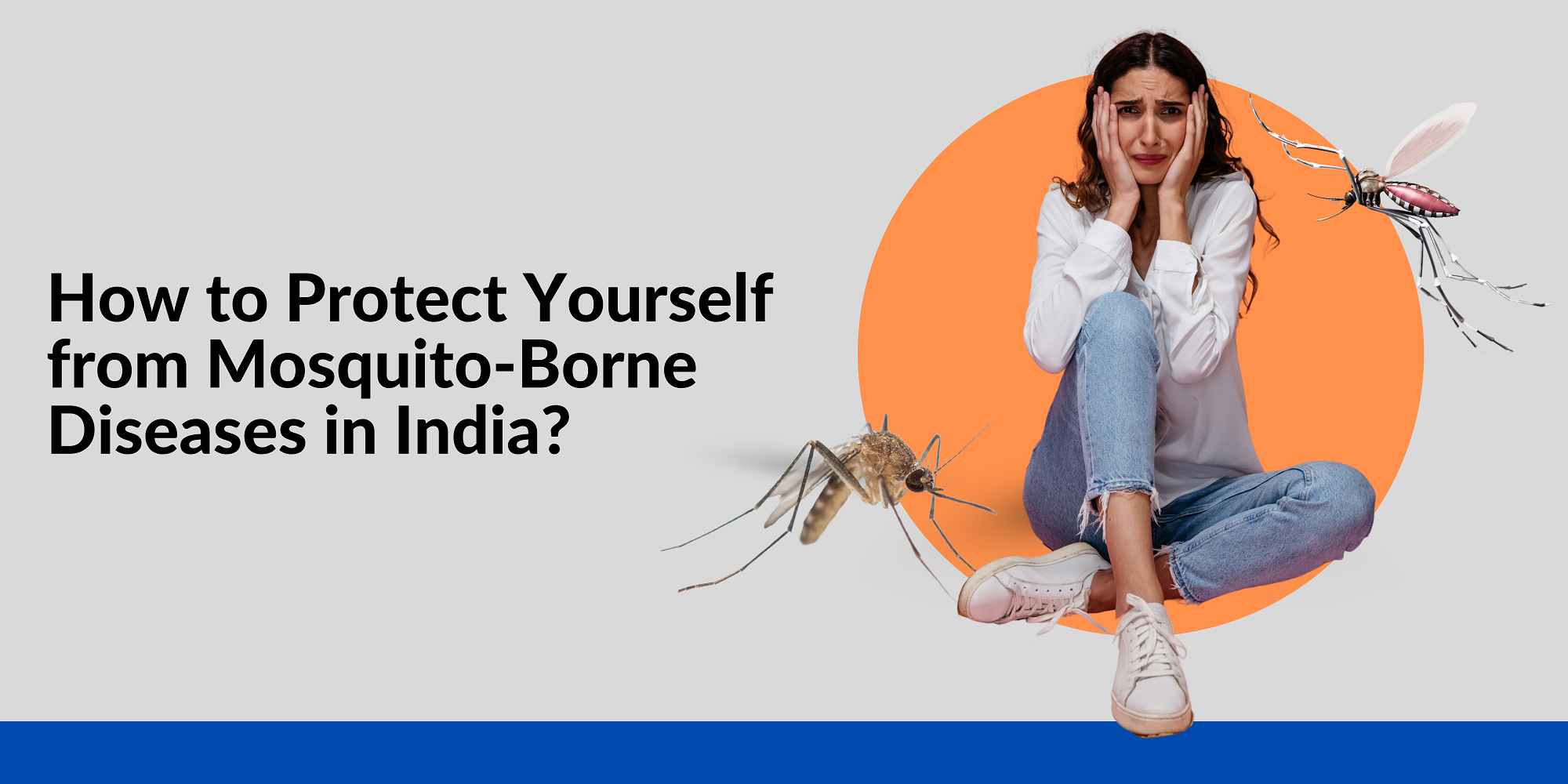Mosquitoes may seem small, but they are some of the leading carriers of diseases in the world. They leave small, itchy bites and, in some cases, deadly illnesses. This is more common in countries with tropical climates, such as India.
As an expat living in India, understanding mosquito seasons and adopting effective disease prevention method is very important to staying healthy in a tropical climate where mosquito-borne illnesses are prevalent year-round.
While the monsoon months (June to September) are traditionally associated with mosquito-borne diseases, recent trends indicate that mosquito activity begins as early as March and April.
This is particularly true in urban areas where stagnant water, poor sanitation, and construction activities create ideal breeding conditions for mosquitoes. Understanding the dynamics of mosquito seasons and taking preventive measures can help mitigate the risks of diseases like dengue, malaria, and chikungunya.
Common Mosquito-Borne Diseases in India
Dengue Fever : Transmitted by Aedes aegypti, dengue cases have been reported even during dry months like April due to urban breeding sites.
Malaria : Spread by Anopheles mosquitoes, malaria cases spike during both pre-monsoon (April-May) and monsoon seasons.
Chikungunya : Another disease caused by Aedes mosquitoes, chikungunya leads to fever and severe joint pain.
Zika Virus : Linked to birth defects, it’s transmitted by Aedes mosquitoes, particularly the Aedes aegypti species
Preventive Measures during Mosquito Season
• Eliminate Breeding Sites:
- Remove stagnant water: Regularly empty containers like buckets, flowerpots, and tires, and ensure proper drainage to prevent water accumulation.
- Cover water storage containers: Use lids or wire mesh with small holes to prevent mosquitoes from laying eggs in water storage containers.
- Clean up your surroundings: Ensure that your yard and surroundings are free from debris and other items that can hold water.
• Protect Yourself:
- Wear protective clothing: Wear long-sleeved shirts and pants, especially during dawn and dusk when mosquitoes are most active.
- Use insect repellents: Apply insect repellents containing DEET, picaridin, or oil of lemon eucalyptus on exposed skin.
- Sleep under mosquito nets: Use mosquito nets, especially when sleeping outdoors or in areas with high mosquito populations
• Precaution at Home :
- Install screens on windows and doors to prevent mosquitoes from entering your home.
- Plant mosquito repellent plants like citronella, lavender and basil around house and in gardens.
• Community-Level Prevention :
- Support Local Mosquito Control Programs: Participate in community clean-up drives and support local efforts to control mosquito populations.
- Report Dead Birds: Report any dead birds to local authorities, as they may be a sign of West Nile virus in the area.
• Stay Informed :
Monitor for Disease Outbreaks: Stay informed about any disease outbreaks in your area and follow guidelines issued by health authorities.
You can visit the official govt website for more details on vector borne diseases in India.
it is crucial to stay informed about these trends and take proactive measures to safeguard your health. At Expatria, we aim to provide valuable insights for expats navigating life in India. Awareness and preparedness are key to reducing risks associated with diseases like dengue, malaria, and chikungunya. By adopting these preventive strategies, you can significantly lower the chances of mosquito bites and associated illnesses.
For more such quick relocation tips, cultural insights, and local updates – join our WhatsApp Channel, ‘Atithi Connect” .
For any query or support related to Expat Management Services, kindly connect with us at enquiry@expatria.in or call at +91-95991-98950





